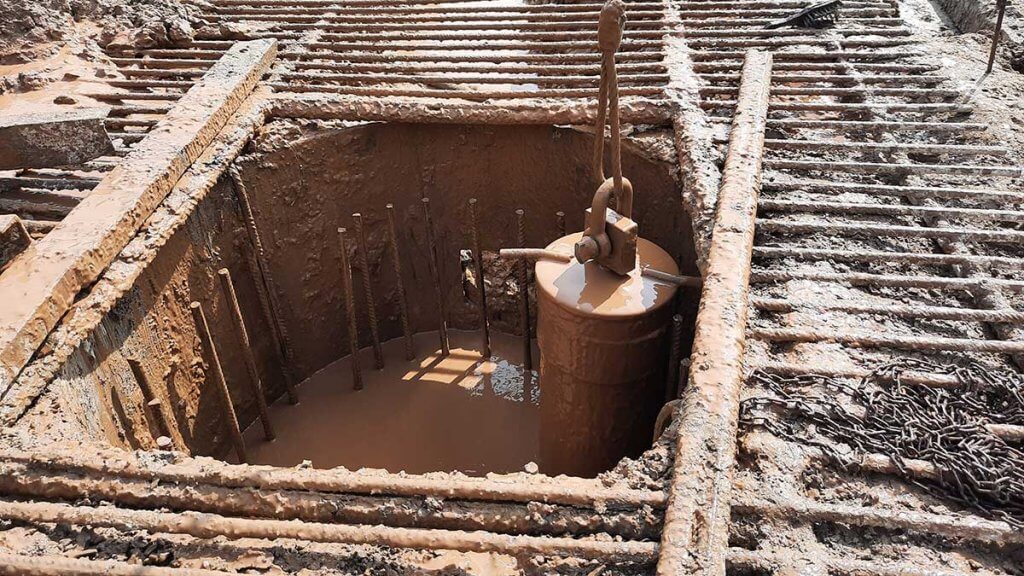Bentonite clay, renowned for its versatility and unique properties, is widely used in various industries for its ability to form a slurry when mixed with water. This bentonite clay slurry has found applications in diverse fields, from construction to drilling and environmental remediation. In this article, we delve into the characteristics, applications, and benefits of bentonite clay slurry, exploring its role in different sectors.
Understanding Bentonite Clay:
Bentonite clay is a naturally occurring, absorbent aluminum phyllosilicate derived from volcanic ash. It exhibits a unique property called thixotropy, meaning it can change from a gel-like consistency to a fluid state when agitated. This property makes bentonite clay an ideal candidate for creating slurries with a wide range of applications.
Formation of Bentonite Clay Slurry:
Bentonite clay slurry is formed by mixing bentonite powder with water to create a homogeneous, fluid-like mixture. The ratio of bentonite to water can adjust based on the desired viscosity and application requirements. Once hydrated, the clay particles swell, forming a gelatinous slurry with excellent suspension properties.
Applications in Drilling Fluids: Bentonites clay slurry plays a crucial role in drilling operations, particularly in the creation of drilling fluids. The slurry is circulated through the drill bit and up the borehole, carrying cuttings to the surface. Its thixotropic nature ensures that the slurry thickens when static, preventing the settling of cuttings and maintaining stability in the borehole.
Tunneling and Excavation Support:
In civil engineering and tunneling projects, bentonites clay slurry use to stabilize excavations and prevent the collapse of surrounding soil. The slurry forms a protective barrier, supporting the tunneling process and safeguarding workers and equipment. Its ability to maintain stability in both saturated and unsaturated soils makes it a reliable choice in such applications.
Environmental Remediation:
Bentonite clay slurry is employed in environmental remediation projects to control the migration of contaminants. The slurry is often injected into the ground, creating a barrier that restricts the movement of pollutants. This application particularly valuable in projects focused on groundwater protection and soil remediation.
Sealing and Plugging Applications:
The exceptional sealing properties of bentonites clay slurry make it an effective choice for sealing earthen structures, such as dams, ponds, and landfills. The slurry creates an impermeable barrier that prevents water seepage and ensures the structural integrity of these earthen formations.
Foundry Applications:
Bentonite clay slurry finds use in foundries for molding and casting processes. The slurry use to create molds for metal casting, providing excellent dimensional stability and allowing for intricate detailing. Its thixotropic nature ensures that the slurry maintains its shape during the molding process.
Construction Grouting:
In construction projects, bentonite clay slurry is utilized for grouting applications. It inject into the ground to improve soil stability, fill voids, and create a stable foundation. The slurry’s ability to penetrate and permeate the soil makes it a valuable tool in construction projects where ground improvement is necessary.
Skin and Cosmetic Uses:
Bentonites clay slurry not limited to industrial applications; it has found its way into the beauty and skincare industry. The slurry use in facial masks and skincare products for its detoxifying and clarifying properties. Its ability to absorb impurities and oils makes it a popular ingredient in natural skincare formulations.
Considerations and Quality Control:
While bentonite clay slurry offers numerous benefits, proper quality control measures must be in place to ensure consistent performance. Factors such as particle size, purity, and hydration characteristics influence the effectiveness of the slurry in different applications. Rigorous testing and adherence to quality standards are crucial to achieving desired results.
Conclusion:
Bentonite clay slurry stands as a testament to the versatility and adaptability of natural materials in various industries. From drilling fluids and tunneling support to environmental remediation and skincare, the applications of bentonite clay slurry are diverse and impactful. Its unique thixotropic properties and ability to form stable, protective barriers make it an indispensable tool in a wide range of projects, contributing to stability, efficiency, and sustainability across different sectors.

